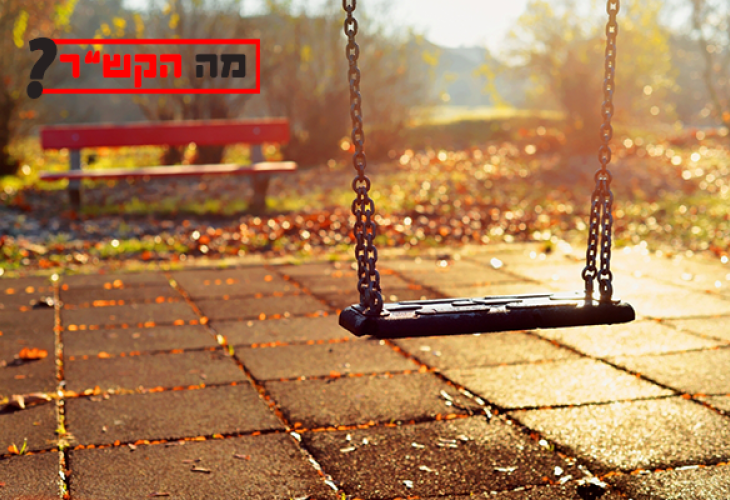Navigating After-School Challenges: A Tale of Growth and Struggle
With the teacher absent, Michali's social struggles deepened. The real trouble began at the after-school program.
 (Photo: shutterstock)
(Photo: shutterstock)Previous episode: Meet Cognifer
While occupational therapy was working wonders on Michali's general abilities, helping her advance in unexpected areas (like reading—Cognifer's techniques gave her confidence and she started to read faster), there were still areas where things were tough.
Primarily, her social situation. Michali didn't have friends. And how she wanted them! Day after day, she came home in tears. On a good day, it was just "I have no friends." On worse days, it was because "X hit me," "Y teased me," or "Z laughed at me."
It was hard to understand what was going on. Why were the girls targeting Michali? From other mothers, I heard about great friendships. But the teacher told me it was a somewhat difficult class—or rather, a somewhat difficult year group. "COVID disrupted their routines in the early years, and they came to first grade less prepared than usual," was her theory, and it seemed plausible to me. Yet other girls aren't suffering, while Michali is.
The teacher tried various ways to empower Michali and stop the bullying. But even when she wasn't being picked on, no one wanted to be her friend. Not for long, anyway.
And if school hours were tolerable, after-school hours became intolerable.
After-School Experiences
I work full-time from home, so I sent my daughters to the after-school program, knowing it made things easier for me, though it wasn't essential—I am at home. Until now, the program was a gift, extra hours to work uninterrupted while the girls came home happy and satisfied, with homework mostly done.
But when Michali joined, I realized this year would be different. She couldn't do homework without my help, so only at 4 PM, when she came home from the program, did she begin her homework. Until we reached a diagnosis and the right medication, doing homework that late was nearly impossible. We spent weeks from 4 PM until Michali's bedtime just doing homework. With the medication, hours shortened, and with Cognifer, skills improved, thank Hashem, and homework time decreased. Still, starting homework at 4 PM is tough.
But the real problem was that during after-school hours—the teacher wasn’t there, and her authority wasn’t present... If during school Michali coped somewhat socially, in the program, her situation worsened. Michali repeatedly came home frustrated and in tears over this or that incident. I felt helpless. On the one hand, I knew the complex social situation. On the other, from Michali's stories, it seemed as if no one was supervising during these hours. Where was the teacher? How wasn’t she preventing bullying, fights?
One day, I visited to speak with the program's supervisor, drawing her attention to the issue. She stood there with a smile, listened for a moment, then said indifferently, "Your Michali attracts trouble. There's nothing I can do about it."
Excuse me?! What does "attracts trouble" even mean? She couldn't explain. She said "something about Michali causes the girls to tease her." So that makes it okay?! No answer.
I left shocked. Of course, I told her this situation was unacceptable to me, and it was her job to ensure the well-being of the girls under her care, not to provide excuses allowing abuse.
In a side note, I’ll mention the supervisor wasn’t a trained teacher. After-school programs often employ young women without special training, whose main role is to look after and engage the children. Still, I expected humanity, if not professionalism...
I remained uneasy for several weeks until one day I received a call from the same supervisor during program hours. "Michali fell in the park we went to, she’s crying and wants to go home, can you pick her up?"
An ugly, bleeding wound on her forehead greeted me when I arrived to pick up Michali, something not mentioned in the call. A little inquiry revealed she didn’t "fall in the park," she flew off a swing, and further questioning showed the call to me came only after Michali pleaded and cried for a long time without response.
That was Michali's last day at the program.
And she was the happiest. The suffering ended.
And me? I cried. I cried over the unfortunate choice of staff at the program, a young, inexperienced, untrained woman entrusted with a whole class and one Michali, who needed a lot of heart, and received so little.
Even more, I cried because I knew if it had been another child who flew off the swing, ten children would have gathered around her in concern, shouting and telling the teacher, "X is bleeding!!! Teacher, look!!! Teacher, call her mom!!!" Then, no matter how unqualified the teacher was, she’d call and report immediately.
Michali was alone.
Do you also have ADHD at home? Feel free to comment.

